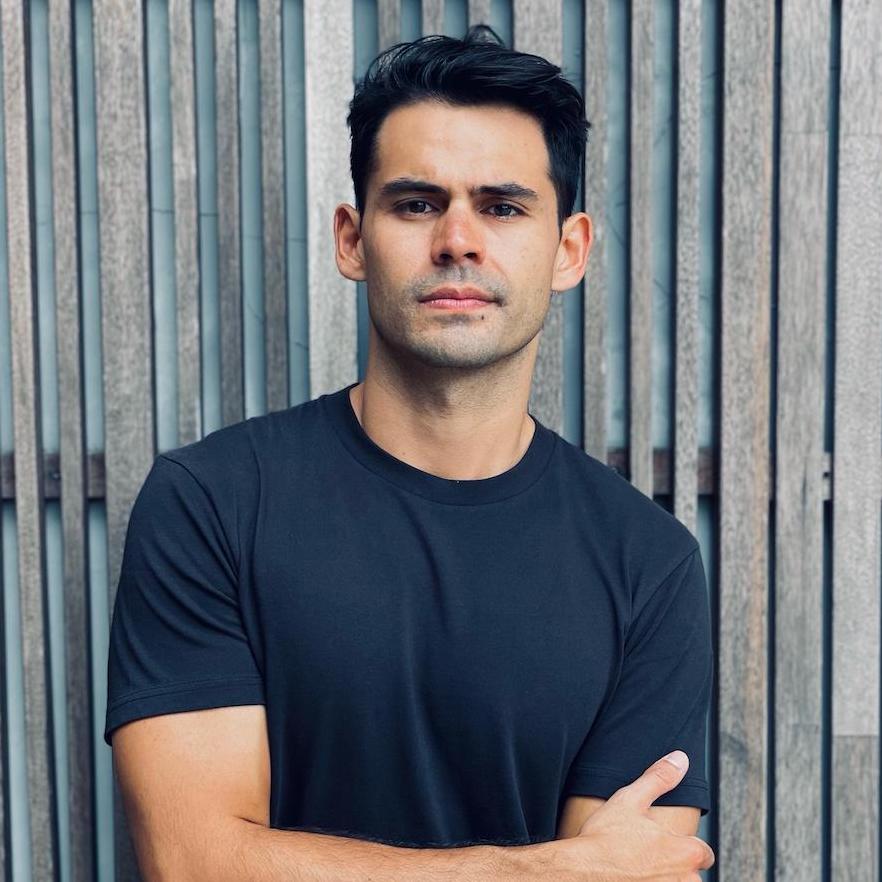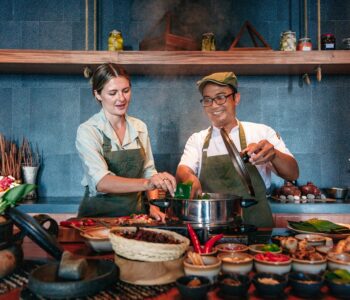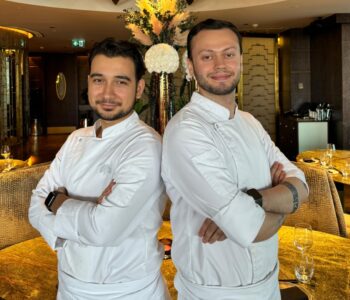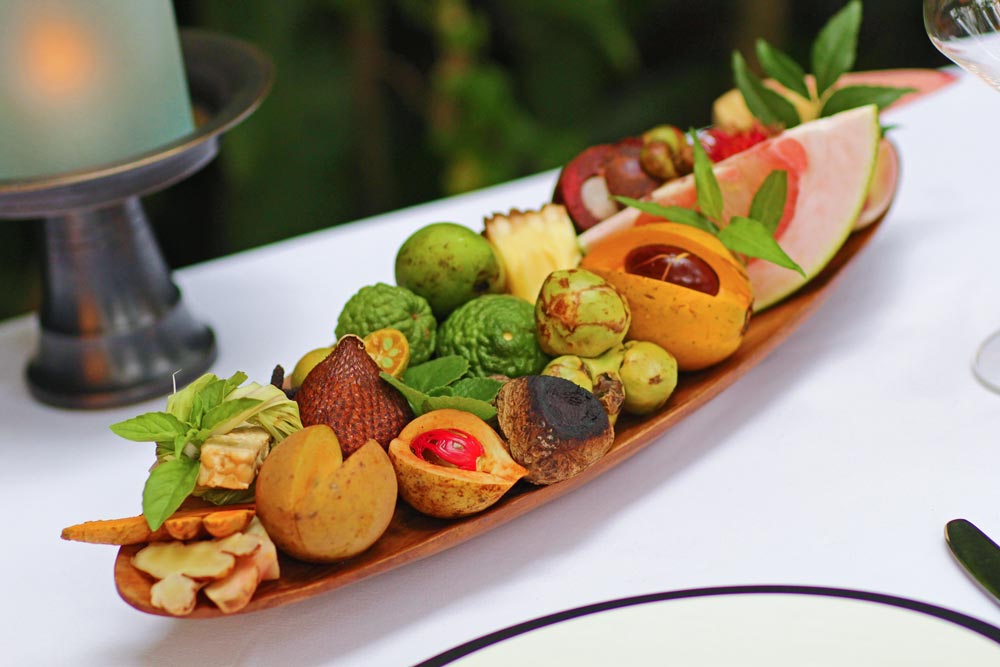
For a long time in the dining industry, imported goods have always been something to boast about, with premium ingredients from abroad a way of signalling high quality and finesse. Now, the tides have turned, and restaurants have shifted their gaze inwards, choosing to uplift locally produced goods to their patrons. In Bali there is certainly a growing pride in showcasing what has been made or grown on the island.
On this subject, NOW! Bali speaks to Chef Chris Salans and Chef Blake Thornley of Mozaic Restaurant, Ubud, whose mission from the beginning was to put a spotlight on the unique flavours found in Indonesia.
Chris, your vision for Mozaic was to uplift unique Indonesian ingredients through fine dining, what prompted this initial idea?
CS: Since I started working in the kitchens, I’ve always worked for chefs who either foraged the local terroir/land, had their own farms, or went to the farmer’s markets to create their menus so it was only obvious to me that when I arrived in Bali I had to showcase the ingredients of Bali and Indonesia.
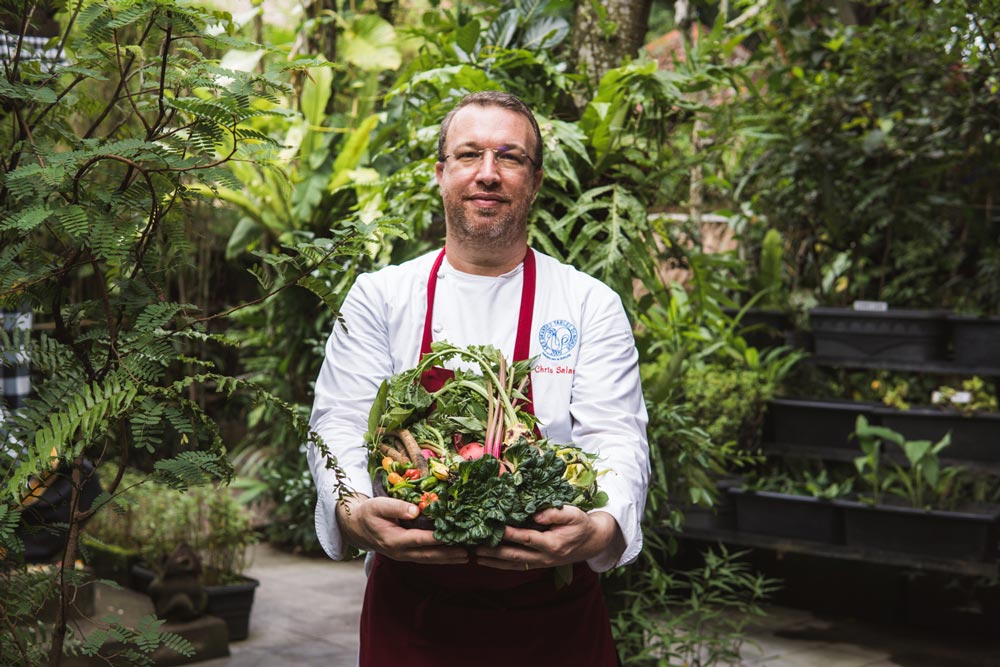
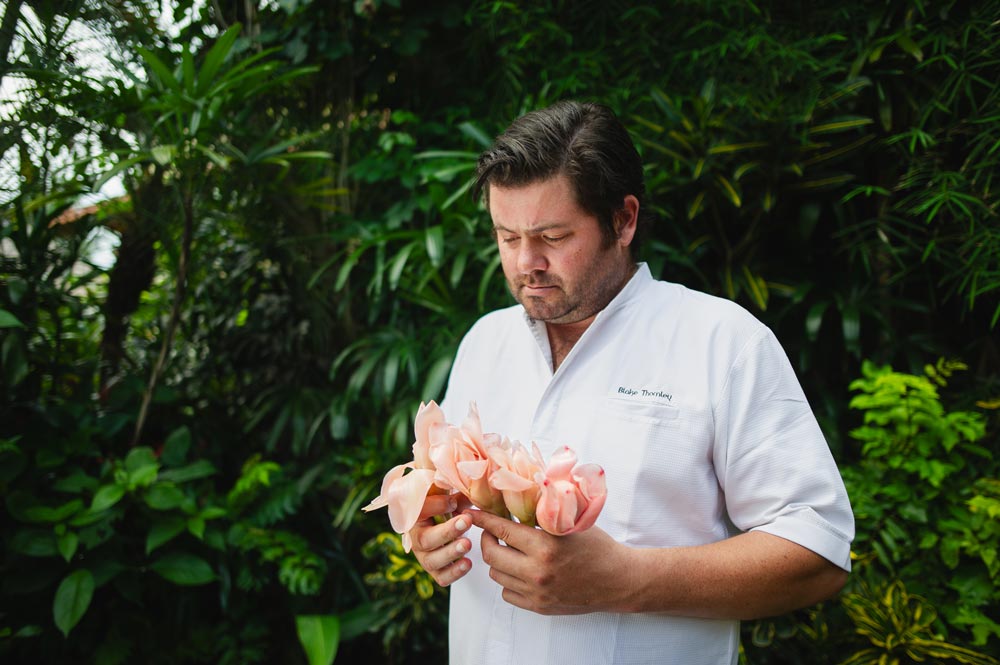
It also made sense that if I wanted to become a destination restaurant I had to give a good reason for people to come from all over the world to eat at Mozaic, and therefore showcasing local flavours in ingredients became obvious to me – people come to Bali to experience a Bali, and not to eat western food (or at least that was true when I conceived Mozaic 23 years ago).
Blake, you’ve been running the kitchen in ‘Mozaic 2.0’, how have you continued that vision 23 years since the restaurant’s initial conception?
BT: The vision is simple, to showcase unique spices, fruits and vegetables across Indonesia. We have learned to work with kluwek nuts, kaffir limes, ginger flowers, sirsak (soursop) – the list goes on!
Now, with Mozaic 2.0, I’m bringing it to the next level: instead of just using the best part, why not use every single part of a spice? Why can’t you use the skin of a citrus, like kaffir lime or pomelo? It has flavour, don’t throw it away. For example, a soaked pomelo skin has the same texture as pork lard, this makes a unique flavour people have not tho
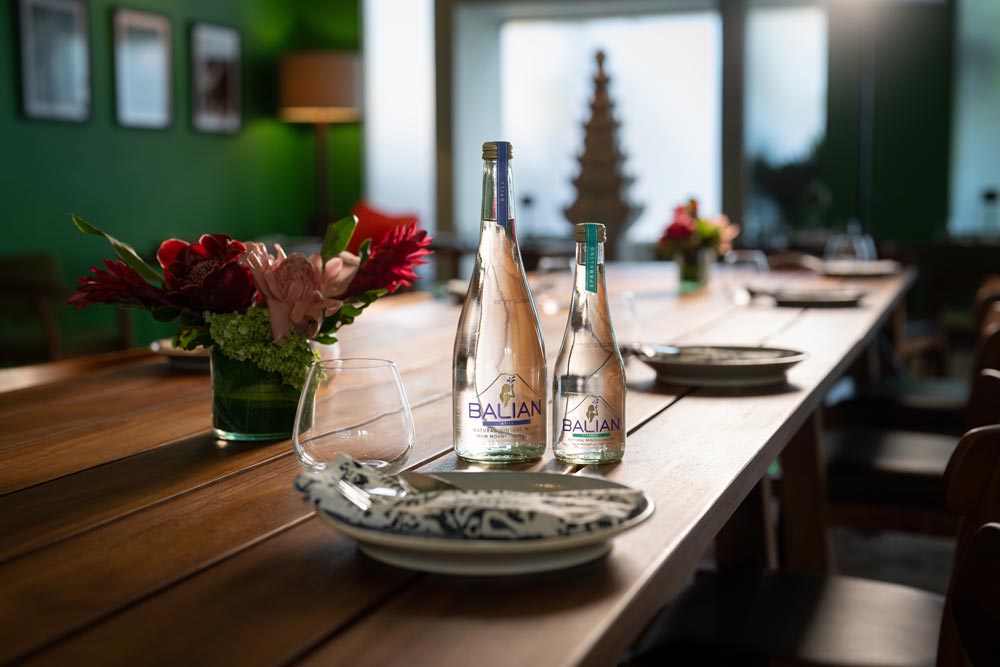
What are your thoughts on the growing trend of sourcing locally, in Bali and worldwide?
CS: Sourcing locally has many positive impacts. Importantly, sourcing locally helps and develops the local agricultural industry, which should be part of our responsibilities as local business owners. From a chef’s perspective, it just means ingredients are more fresh and therefore tastier, which is at the heart of producing and serving good food. Finally, it’s also a way of showcasing the culinary wealth of the island to visitors, it signals that Bali and Indonesia have seriously impressive agricultural offerings.
We are also proud to feature locally made items such as wines from Two Islands; Balian water, a pristine natural mineral water source from Mt.Agung; or local spirits like arak and brem.
What are your thoughts on how to balance luxury vs local? Are there areas where premium ingredients from abroad are still required?
BT: Yes there’s truffle and caviar, which people love, but we can actually elevate these with local products. We can compress caviar with ginger flower and kaffir lime to give them a distinct flavour and aroma; or fuse tempe and truffle to create something new entirely. There is always a method to the madness! Who defines what a ‘premium ingredient’ is nowadays anyway?
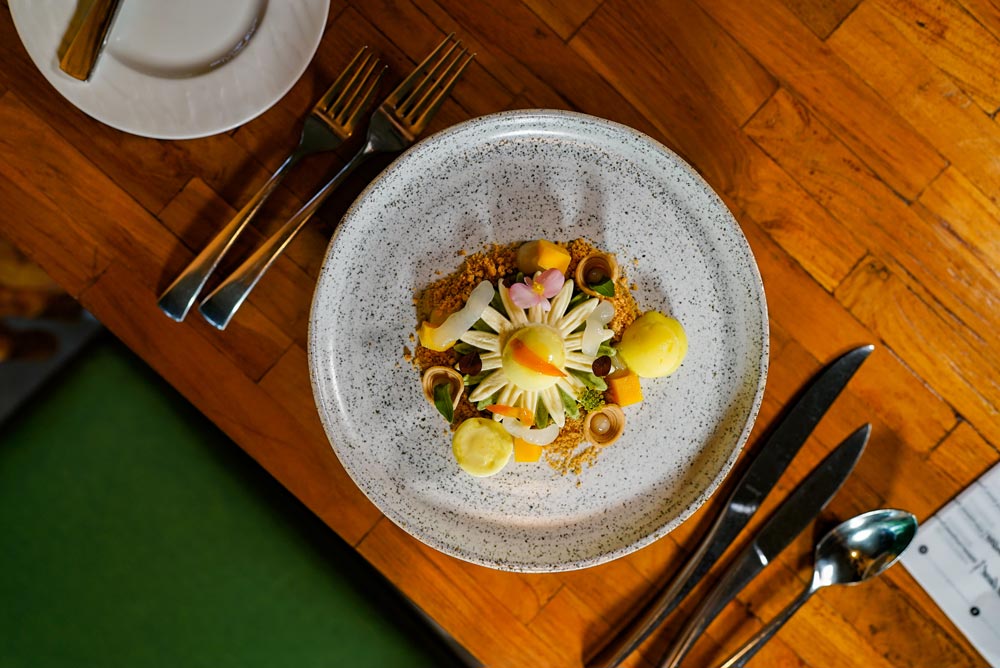
What do you hope to see more of when it comes to sourcing locally in Bali?
CS: One of the main incentives for developing agriculture in Bali comes from the fact that there are so many high-quality restaurants on the island. With the demand for high-quality ingredients, this incentivises farmers and further investment in agriculture, or indeed in developing the local food and beverage-related industries, be it wine, beer, water, equipment, etc. One example is that 20 years ago I found some black raspberries growing in Bedugul, the farmer said he didn’t have the resources to increase yield, so Mozaic gave him the money to grow and today he’s one of the major suppliers for Bali!
I believe that it is the responsibility of chefs and restaurant owners in Bali to make sure that they implement sustainable measures of purchasing in their businesses and to ensure that the farmers and suppliers that they are buying from are implementing sustainable methods too. As business owners who make a living in this country, it is our responsibility to make sure that we do so in a way that does not disturb the environment and well-being of the terroir/the land where we live.

